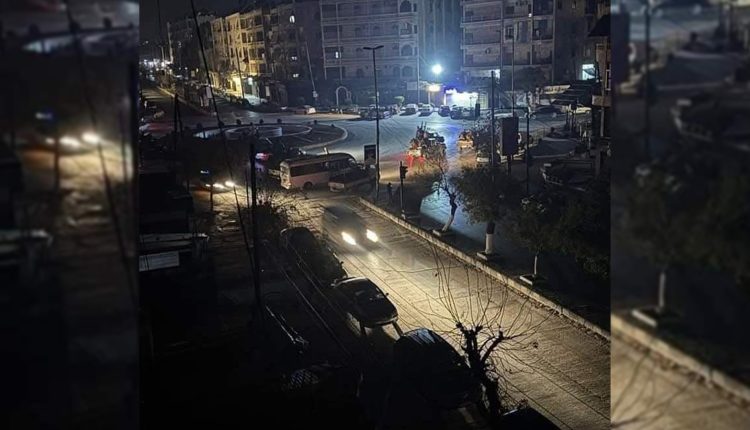Turkish-backed factions claim Syrian government officers coordinating with them
HAMA, Syria (North Press) – Hayat Tahrir al-Sham (HTS), formerly known as Jabhat al-Nusra, and Turkish-backed factions claimed on Saturday that officers from the Syrian government forces are in contact with them to coordinate control over various regions in the country.
This revelation comes amidst a significant escalation, with HTS and allied factions capturing Hama, Aleppo, and Idlib provinces as part of their ongoing military campaign dubbed “Deterring Aggression.”
Rapid Advances and Strategic Gains
Since the offensive began on Wednesday, opposition forces have made sweeping gains, taking control of major urban centers, including Hama and Aleppo, as well as large parts of their surrounding countryside. The coalition has declared their intent to advance toward Damascus, marking a dramatic shift in the dynamics of the Syrian conflict.
Claims of Internal Cooperation
According to statements from the factions, Syrian government officers have allegedly reached out to opposition leaders to negotiate the transfer of control over strategic areas. While these claims remain unverified, they hint at potential cracks within the Syrian regime as it faces renewed pressure from opposition advances.
Rumors of Instability in Damascus
Adding to the uncertainty, opposition platforms have circulated unconfirmed reports of a military coup in Damascus. Allegedly, clashes have erupted between the Republican Guard and the Fourth Division, two elite units loyal to President Bashar al-Assad.
The Syrian government has not addressed these rumors, but the reports have sparked widespread speculation about the regime’s stability amid the rapid territorial losses.
Opposition’s Next Steps
Leaders of the “Deterring Aggression” campaign have vowed to press on toward the capital, describing their actions as a “revolutionary resurgence.” They called on other factions across Syria to join their push to “liberate the country from the regime.”
Regional and International Implications
The swift advances by HTS and Turkish-backed factions have reignited tensions in Syria, raising questions about the role of regional powers, particularly Turkey, in shaping the conflict’s trajectory. Ankara’s influence over opposition groups and its strategic objectives remain critical factors as the situation unfolds.
Moreover, the potential for regime instability in Damascus could have far-reaching consequences for Syria and the region. Any shift in power dynamics might lead to renewed violence and displacement, exacerbating the already dire humanitarian crisis.
Observers are closely monitoring developments in both the battlefield and the political sphere, as the conflict appears to be entering a volatile new phase.

